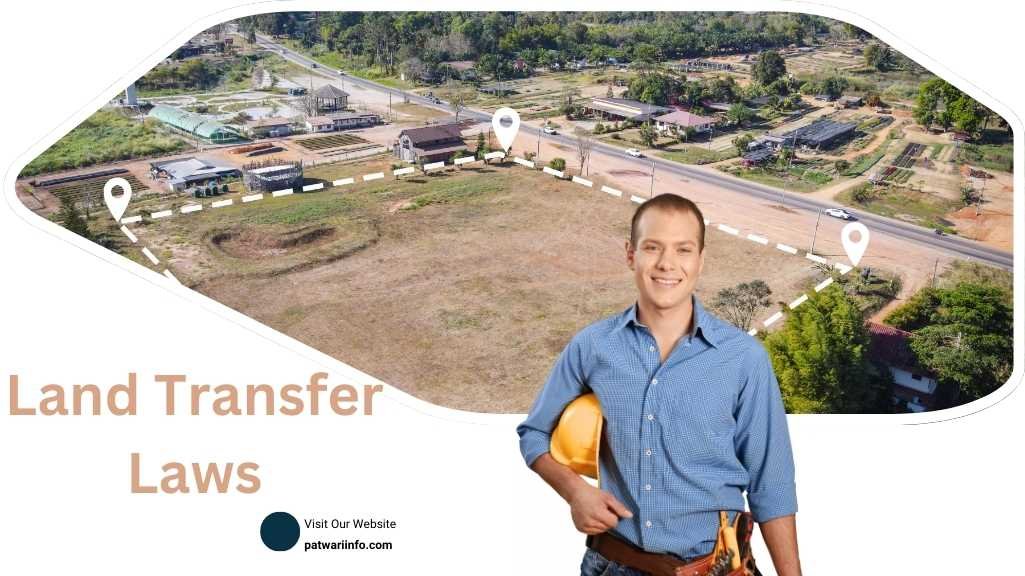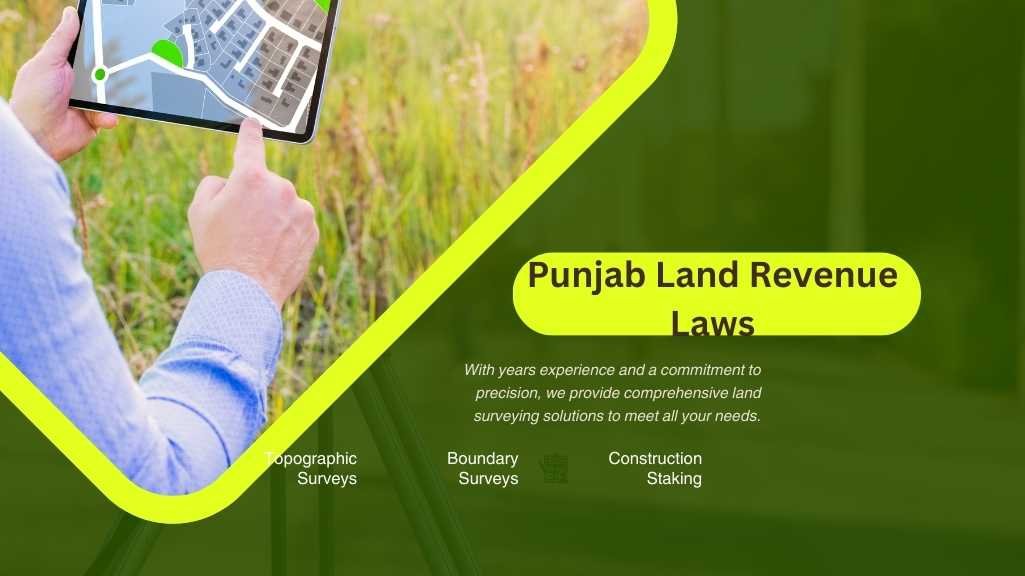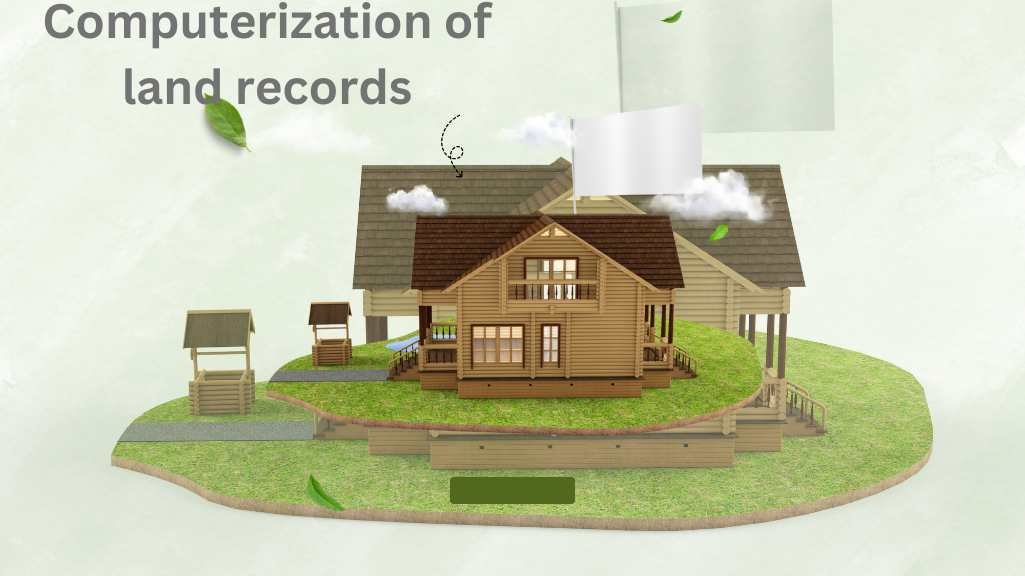Introduction: Punjab Land Revenue Laws
Punjab Land Revenue Laws is an administrative body. This body carries out the work of identifying ownership and managing land in Punjab. If you buy or sell land or you pay any tax on land and whatever legal problems you face, Punjab Land Revenue Laws provides solutions to all these problems. If you deal with land, then today we will tell you all the laws related to it so that you do not face any legal problems.
Table of Contents
Punjab Land Revenue Laws 1967
The Punjab Land Revenue Laws 1967 was made to maintain land ownership and its records in Punjab. The following are the important points of this rule:
- Protecting your land ownership rights
- Preserving land records and updating the records
- Establishing a sustainable system for collecting taxes so that Punjab is economically organized
- One of its important functions is to make legal procedures for the purchase and sale of land
This law works under the Punjab Board of Revenue, which is responsible for the management of land It supervises all the matters related to land so that the people do not face any legal problems

Necessary reforms in land revenue
Today, we will tell you about some of the basic reforms working under the Punjab land revenue system, which are as follows
Patwari
Patwari is the land supervisor of a village in any district. He is a government official who supervises various matters related to your land, including collecting tax on land, protecting ownership, and executing written agreements regarding the purchase and sale of land, which happens in the case of transfer
Gardawar
He is also a government official who supervises every work of the Patwari and checks his work to see whether the work he has done related to the land is in accordance with the law or not.
Tehsildar
The job of the Tehsildar is to supervise the work of the Patwari and the Lawyer. The Tehsildar is an officer at the level of the Tehsil who supervises all the matters related to land. If the Patwari registers a transfer, he checks the law, and then the Tehsildar approves the transfer. Similarly, the Tehsildar also looks after the rest of the land matters, and the Tehsildar is also responsible for collecting the government tax related to the transfer.
Fard Malkiat
Private ownership is a proof of ownership of the land. If you want to buy land from someone, you will ask him for a fresh certificate, which shows whether the land is in his name or not and how many kanals are in his name. You get all these details from the certificate. If you want to take a loan from the bank,
then you also need a certificate. To get a certificate, you have to go to the Patwari’s office. If you want to get a gas or electricity connection, then you also need a certificate.
Gardawari
All the information about the agricultural land that is cultivated is called Gardawari. The Patwari has a Gardawari register, in which the details of the cultivation of the land and the crops grown on it are recorded and this register also proves the possession of any landowner.
Transfer (Intiqal)
Transferring land from one person to another is called transfer. It is a certified document that shows the ownership of land by any person. The transfer is registered by going to the office of the concerned Patwari. The short procedure is that both the seller and the buyer of the land go to the Patwari’s office.
The Patwari registers the transfer after verifying the records and then the law officer checks the transfer and later the Tehsildar approves the transfer and if the area of the village or area has been online, then you go to the concerned computerized office and complete the process.
Punjab Land Transfer Laws
The legal procedures to be followed for the ownership and purchase and sale of land are as follows
Purchase and sale of land
- The seller has to provide legal documents of land ownership, which are verified by visiting the office of the concerned Patwari to see if this legal document is correct or not.
- When an agreement is made between two people, it is written on stamp paper, which contains the details of the legal agreement so that no one deviates from the agreement. Get the agreement written by a registered petition writer so that in case of any fraud, you do not have to face colony problems while approaching the court.
- For this transfer, go to the Patwari’s office and register the transfer and pay the necessary government fee, which you have to pay in the bank and the Patwari will give you the receipts. Submit the original receipts to the Tehsildar and keep a photocopy of them as a record.

Transfer of Inherited Land
If a person dies and the land is registered in his name, then the process of transferring that land to his heirs is called inheritance transfer. This transfer is registered with the Patwari for which the following documents have to be provided:
- Fatwa Shariat
- FRC (Family registration certificate)
- Death Certificate
- Two Witnesses
Revenue Record and its Digitization
The Punjab government is working under the Punjab Land Record Authority to modernize the land records and has established an institution in this regard, which is the Land Record Management Information System.
Benefits of Digital Land Records
- Individual ownership becomes available immediately.
- Legal issues of land have been reduced to a great extent.
- You can verify the ownership of land online at any time.
- Corruption has been reduced to a great extent due to the ownership of land being online.
Land Tax and Revenue Laws
There are various types of taxes imposed on land in Punjab, which are as follows:
Tax on agricultural land
Farmers have to pay tax according to the nature of their land and the crop cultivated on it
If the farmer’s land is more than 12 acres, then agricultural income tax is imposed on it
Tax on residential and commercial land
Tax on the buyer
- CVT tax is imposed on commercial land, which is usually two percent
- If your residential land is within the limits of the committee, then you will be charged one percent stamp duty and if it is outside the limits of the committee, then you will be charged three percent stamp duty
- There is one percent TMA fee
- Transfer fee is Rs. 300
- Land Revenue Authority fee is Rs. 1700
- If the worth of the asset is at a value capped at 5 million, then the following applicable FBR tax stands: tax for an old filer is 3%, tax for a new filer is 6%, and for non-filer it stands at 12% of the worth of the asset.
- If the asset surpasses the value of 50 million, the tax payable applicable for non-filers is 12% and those filing are placed under two categories with 3.5% for mid filers and 6% for late filers.
- If the asset is above the worth of 100 million, then for mid-filers, the tax stands at 8%, and the FBR tax stands at 20% for non-filers.
Tax on the seller
- If the value of the land is 50 million, then the seller who is a filer will pay 3% and if he is a late filer, then a tax of 6% and if he is a non-filer, then a tax of 10% FBR tax will be applied on him.
- If the value of the land is more than 50 million, then a tax of 3.5% is applied on the filer and if he is a late filer, then a tax of 10% will be applied on him. There is a 7 percent FBR tax for land and 10 percent for non-filers.
- If the value of the land is more than 100 million.
- If the value of the land is more than 100 million, then the filer will have a four percent tax, the late filer will have an eight percent tax,
- And the non-filers will have a 10 percent tax.
Legal disputes related to land and their solutions
The legal problems faced in the current era related to land are as follows:
file a case in court
If there is any problem in the ownership of the land or there is any problem in the control of the land, then a civil court can be approached. The court records the statements of the Patwari and the revenue officers and decides after hearing the reports of both the affected persons.
Approaching the Revenue Board
If you have any complaints related to the land or you are afraid that the Patwari has cheated you, you can apply to the Punjab Board of Revenue.
Registering a complaint in the Tehsil Office
If your land record If there are any errors and the Patwari is not correcting them, you can apply to the concerned Assistant Commissioner. They will try to resolve your issue according to the law.
Recent steps and reforms of the Punjab government
The Punjab government has taken the following steps to organize the land revenue system
Computerization of land records
- Land record centers have been established in all districts of Punjab, including all tehsils.
- All land-related matters are resolved easily in the land record center, which also provides the facility of individual ownership and transfers.
E-stamp system
To prevent jelly stamps in the purchase and sale of land, the e-stamp system has been introduced, which has reduced the number of jails. Let’s purchase stamps through the e-stamp system.
Online portal and mobile app
Now you can check your land records online from the comfort of your home using a mobile app. You do not need to visit any office.
Result: Punjab Land Revenue Laws
The Punjab government has introduced the Punjab Land Revenue Laws in a better way and implemented modern reforms in it. Now all the facilities from buying to selling property are available online, which helps you avoid fraud and scams. In this article, we have given you complete information about buying and selling property, and we have also provided you with complete information about the taxes that apply to them, and we have also provided information about the legal aspects related to Jeddah, which will prove beneficial to you.

